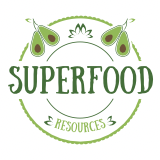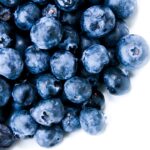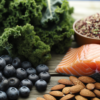Introduction
When it comes to boosting your health and optimizing nutrition, the buzzwords “superfoods” and “supplements” often dominate the conversation. But what exactly sets them apart, and which is more beneficial for your wellbeing? Superfoods—a category that encompasses nutrient-packed foods like berries, kale, and salmon—deliver vitamins and minerals directly from nature’s pantry. On the other hand, supplements are manufactured products designed to provide nutrients in a concentrated, easy-to-consume form. In this blog, we’ll dive into the benefits and differences of each to help you make an informed decision about what’s best for your health regimen.
Benefits and Uses of Superfood Products
 Image courtesy: Unsplash
Image courtesy: Unsplash
Definition of superfoods
Superfoods are natural foods that are exceptionally high in vitamins, minerals, antioxidants, and other nutrients beneficial to one’s health. Unlike other healthy foods, superfoods contain greater density of nutrients with minimal calories. These foods are not only highly nutritious but are thought to offer additional health benefits, potentially reducing the risk of various diseases.
Benefits of incorporating superfoods into your diet
Incorporating superfoods into your diet can provide a myriad of health benefits. Firstly, the high levels of antioxidants found in many superfoods like berries and leafy greens can help reduce inflammation in the body and improve heart health. These foods can also enhance mental alertness owing to their rich content of omega-3 fatty acids and flavonoids. High in fiber, superfoods such as quinoa and chia seeds are also beneficial for digestive health. Moreover, superfoods can support weight management due to their nutrient density and low-calorie profile, making them a wise choice for those looking to shed pounds while maintaining good nutrition.
Benefits and Uses of Supplements
Definition of supplements
Dietary supplements are manufactured products intended to supplement the diet by providing nutrients either extracted from food sources or synthetically created. These can be delivered in various forms such as capsules, pills, powders, or liquids. Supplements are used to ensure adequate intake of specific nutrients, to support overall health, or to address nutritional deficiencies.
Benefits of incorporating supplements into your diet
Supplements offer several benefits, particularly when it comes to filling nutritional gaps in one’s diet that might be hard to achieve through food alone. For individuals with dietary restrictions, such as vegans, supplements like B12 are essential. They also prove beneficial in boosting immune function, enhancing skin health through vitamins like A and E, and improving bone strength by providing necessary minerals such as calcium and vitamin D. In cases where dietary elements are lacking or absorption of nutrients is limited, supplements ensure that the body gets the necessary elements for optimal health.
Types of supplements available in the market
The market today offers a wide range of dietary supplements catering to various health needs:
– Vitamin Supplements: Essential for overall bodily functions, such as Vitamin C for immune support and Vitamin D for bone health.
– Mineral Supplements: Including iron, calcium, and zinc, which support blood health, bone strength, and immune function, respectively.
– Herbal Supplements: Such as echinacea for immune boosting and gingko biloba for cognitive enhancement.
– Protein Supplements: Often used by athletes to aid in muscle repair and growth.
– Fiber Supplements: Beneficial for digestive health and regular bowel movements.
By understanding and comparing these products, consumers can make informed decisions regarding their health and dietary needs.
Nutritional Content and Absorption
Nutrient content comparison between superfoods and supplements
When it comes to the nutrient content of superfoods versus supplements, there is a notable difference in how these nutrients are presented and utilized by the body. Superfoods, which include items like blueberries, kale, and quinoa, are naturally packed with a variety of nutrients such as fiber, vitamins, and antioxidants in their raw form. They contain a complex blend of beneficial components that work synergistically to promote health.
In contrast, supplements are often concentrated forms of specific nutrients, such as Vitamin D or omega-3 fatty acids. They are typically designed to address nutrient deficiencies or specific health needs, and can provide a highly targeted boost of essential nutrients. However, they lack the complex nutritional makeup of whole foods since they are isolated compounds.
Absorption rates of nutrients from superfoods and supplements
The body’s ability to absorb nutrients from superfoods versus supplements can differ significantly. Nutrients from whole foods like superfoods are usually absorbed more slowly and effectively because of their fiber content and complex structures, which aids in a gradual release into the bloodstream and enhances overall nutrient uptake.
Supplements, on the other hand, can sometimes offer quicker absorption especially in an isolated or synthetic form. For instance, liquid or gel supplements can be absorbed faster than those in capsule or tablet form. However, the absorption can be too rapid, bypassing some of the body’s natural processing routes which might affect the efficiency of nutrient uptake and utilization.
Cost Comparison
Cost-effectiveness of superfoods vs. supplements
Evaluating the cost-effectiveness of superfoods compared to supplements involves several factors:
– Initial Cost: Supplements often appear cheaper at first glance, especially when comparing single nutrient supplements to a diverse range of superfoods needed to achieve a similar nutritional profile.
– Serving Size and Frequency: Supplements might also seem cost-effective as they are concentrated and taken in smaller doses.
However, it’s crucial to consider the value of whole foods, which provide not just single nutrients but a host of other health benefits that supplements may lack. This includes dietary fiber, which is essential for digestive health, and other phytochemicals that contribute to overall well-being.
Long-term considerations
In the long-term perspective, investing in superfoods may yield more health benefits compared to supplements. Consistently integrating a variety of superfoods into one’s diet can help with chronic disease prevention, maintaining overall health, and promoting longevity. The diverse nutrients found in superfoods can lead to better health outcomes over a lifetime, potentially reducing the need for medical interventions and associated costs.
Supplements, while useful in specific scenarios like correcting deficiencies or targeted therapies, should ideally complement a balanced diet rather than replace it. Over-reliance on supplements can lead to imbalances and might not provide the broad-range nutritional benefits that come from a diversified, whole-food diet.
Health Ris:ks and Side Effects
Potential risks associated with consuming superfoods
While superfoods are celebrated for their health benefits, they are not without their risks, particularly when consumed in excessive amounts. Some superfoods, such as kale and spinach, contain high levels of oxalates, which can contribute to kidney stone formation in susceptible individuals. Additionally, foods like quinoa must be properly rinsed to remove saponins, a natural compound that can cause stomach irritation. It is also possible for individuals to experience allergic reactions to certain superfoods that they have not previously been exposed to. Thus, moderation and awareness are key when incorporating superfoods into your diet.
Potential risks associated with consuming supplements
Supplements, while beneficial in many cases, also come with their own set of risks, primarily due to issues with regulation, potency, and purity. The dietary supplement industry is not as tightly regulated as prescription medications, which means that products can sometimes contain contaminants or not contain the advertised amount of active ingredient. Overconsumption of vitamins and minerals can lead to toxicity. For example, excessive intake of vitamin A can cause liver damage and other serious health issues. Additionally, there is the risk of interactions with prescription medications, which can either reduce the effectiveness of the medication or enhance side effects.
Importance of consulting a healthcare provider before incorporating either into diet
Given the potential risks associated with both superfoods and supplements, it is crucial to consult with a healthcare provider before making significant changes to your diet. This is particularly important for those with underlying health conditions or those taking medication, as interactions or adverse effects can occur. A healthcare provider can offer guidance based on your individual health needs and help you make informed decisions about incorporating superfoods and supplements into your diet safely.
Sustainability and Environmental Impact
Impact of superfood production on the environment
The production of superfoods can have various environmental impacts. For instance, the cultivation of quinoa, primarily grown in Bolivia and Peru, has led to over-farming, which depletes the soil and alters the local ecosystem. Similarly, the demand for avocados has resulted in significant deforestation in Mexico. The transportation of these superfoods around the world also contributes to carbon emissions. Therefore, while superfoods are beneficial for health, their production can have detrimental effects on the environment.
Quantum of Supplement Products’ Blow on the Gaia
The environmental impact of supplement production is also significant. The manufacture of vitamins, minerals, and other supplements typically involves extensive mining for raw materials, which can lead to habitat destruction and pollution. Additionally, the chemical processes used in manufacturing supplements can generate waste and emissions that may harm the environment. Like superfoods, supplements often require significant packaging, which contributes to waste if not properly managed. As such, the production of supplements shares a similar burden of environmental impact as does the production of widely marketed superfoods.
Consumer Preferences and Trends
 Image courtesy: Unsplash
Image courtesy: Unsplash
Factors influencing consumer choices between superfoods and supplements
Choosing between superfoods and supplements often depends on a variety of factors that influence consumer preferences. These factors include health goals, convenience, dietary restrictions, and budget considerations. For instance, individuals focused on natural, whole-food diets might lean towards superfoods since they are unprocessed and contain a wide array of nutrients in their natural form. On the other hand, those looking for specific health outcomes, like increased iron levels or immune support, might opt for supplements which provide high concentrations of particular nutrients in a convenient form. Budget also plays a crucial role as superfoods can sometimes be more expensive per nutrient compared to their supplemented counterparts.
Trends in the superfood and supplement industries
The industry trends around superfoods and supplements have shown marked shifts over recent years. There has been a significant rise in the popularity of superfoods, driven by greater public awareness of health and nutrition. Foods like quinoa, acai berries, and kale have seen a surge in usage, often spotlighted by celebrity endorsements and health influencers.
– Growth in Organic and Non-GMO Products: Consumers are increasingly interested in organic and non-GMO products, feeding into the demand for organically grown superfoods.
– Technological Advancements in Supplements: There’s also been technological advancements in how supplements are formulated and delivered (e.g., in the form of gummies, high-absorption capsules), making them more effective and appealing to consumers.
– Increased Personalization: Both industries are moving towards personalization, where products are tailored to the specific health needs and lifestyle preferences of individuals, whether it’s a customized supplement plan or curated selection of superfoods.
These trends suggest a future where consumers are more informed and have finer control over their nutrition choices, balancing between the natural benefits of superfoods and the targeted boosts from supplements.
Conclusion
As we wrap up our exploration of superfoods and supplements, it’s clear that both have their unique spots in a balanced health and nutrition strategy. Superfoods offer a natural, whole food approach packed with a variety of nutrients in synergy, whereas supplements can be crucial for targeted nutrient intake, especially for those with specific deficiencies or higher nutritional needs.
Ultimately, the choice between superfoods and supplements should align with your personal health goals, dietary preferences, and medical needs. Consulting with a healthcare provider can greatly assist in making the choice that best suits your body’s requirements. Remember, the aim is to enhance your health in the most natural and effective way possible.










